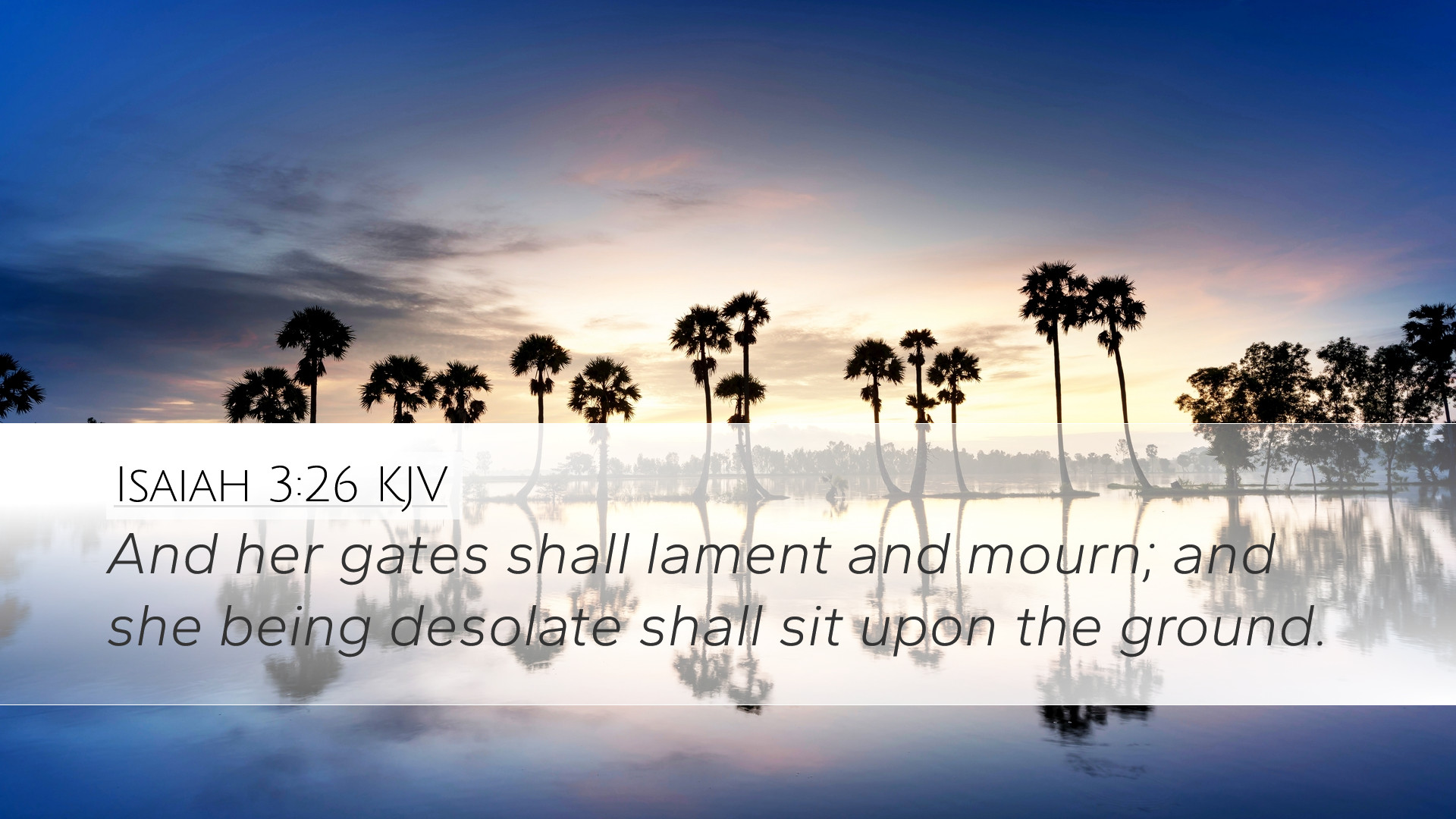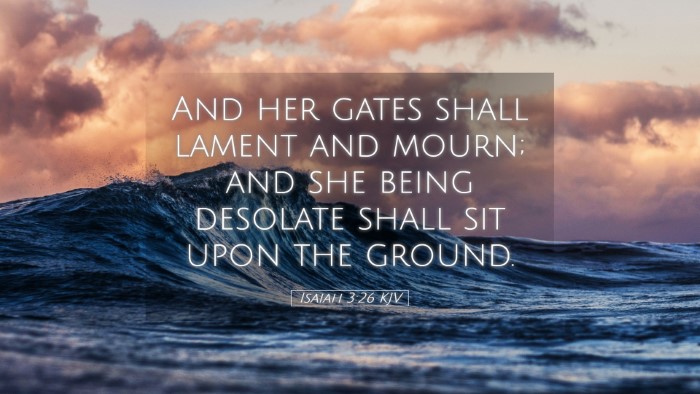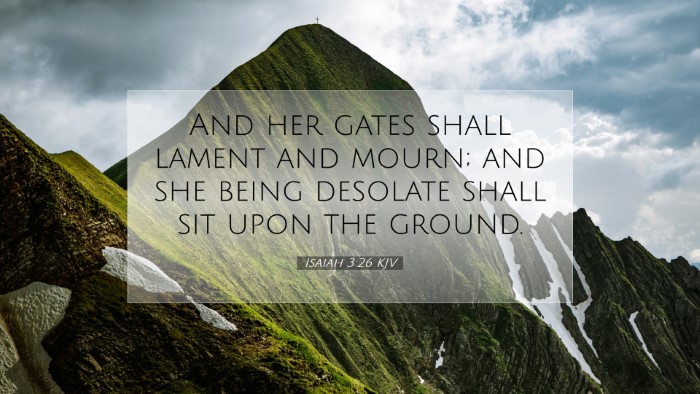Commentary on Isaiah 3:26
Isaiah 3:26 states: "And her gates shall lament and mourn; and she being desolate shall sit upon the ground." This verse provides profound insights into the state of Jerusalem and its fate as prophesied by Isaiah. The commentaries consulted reflect on themes of judgment, desolation, and spiritual ruin, which are crucial for understanding the broader context of this prophecy.
Contextual Background
To fully grasp the implications of Isaiah 3:26, one must consider the historical and cultural context of Judah during Isaiah's time. Jerusalem was facing moral and spiritual decay, marked by oppression and social injustice. The forthcoming judgment served as a warning to a rebellious nation that had strayed from divine mandates.
Insights from Matthew Henry
According to Matthew Henry, this verse illustrates not merely physical ruin but also spiritual desolation. Henry emphasizes that the gates of the city—a symbol of public entrance and activity—will be filled with mourning, reflecting the collective sorrow over the lost glory of the city.
- Mourning and Lamentation: Henry notes that the lamentation of the gates signifies the cessation of joy and the onset of judgment. The gates, once bustling with life, are now silent.
- Desolation: He elaborates on the concept of desolation, pointing to the abandonment and shame that come upon the nation due to sin. This prompts a sober reflection on the consequences of forsaking divine direction.
Insights from Albert Barnes
Albert Barnes highlights the emotional weight of this verse by discussing the gates as markers of prosperity and security. When they lament, it signifies a profound loss for the entire community. Barnes comments on the metaphorical significance of mourning, indicating that the gates themselves recognize the judgment of God on the people.
- Symbolism of Gates: Barnes notes that gates typically represent protection and strength. Their lament underscores a lack of security and divine favor, leading to an empty city.
- Implications of Sitting on the Ground: The image of sitting on the ground, as Barnes interprets, evokes a posture of defeat and despair, illustrating how the once-proud city and its inhabitants now experience humiliation.
Insights from Adam Clarke
Adam Clarke provides an in-depth analysis of the word "desolate." He points to the crucial characteristic of this desolation being both physical and spiritual, resonating deeply with the prophetic messages of Isaiah.
- Desolation as a Theme: Clarke connects the lament of the gates with the spiritual desolation of the nation. He describes desolation as a result of continued rebellion against God’s covenant.
- Reflection on Spiritual States: Clarke encourages readers to reflect on their spiritual vitality, noting that neglecting God's ways results in similar outcomes, where societal structures reflect personal and communal spiritual states.
Theological Reflections
This verse serves as a stark reminder of the consequences of turning away from God. The collective mourning reflects not only individual sin but also the communal repercussions of forsaking divine law.
- God's Justice: The narrative encapsulated in Isaiah 3:26 reinforces the necessity of divine justice. In a world where sin abounds, the call to accountability remains vital.
- Renewal and Restoration: While the verse communicates desolation, it also lays the groundwork for future hope. Recognizing our sinfulness is the first step toward repentance and eventual renewal.
Application for Today
The themes present in Isaiah 3:26 challenge contemporary believers to examine their hearts and the spiritual state of their communities. How do the lamentations of the gates resonate in our current societal context?
- Call to Repentance: As pastors and leaders, embracing a spirit of humility and recognizing the areas where we have strayed from God’s truth is paramount.
- Community Reflection: For theologians and scholars, engaging with this text encourages discussions on the impact of societal sin and the need for community renewal through God’s grace.
- Hope in Judgment: Finally, the lamentation also serves as a precursor to hope; understanding desolation leads to a desire for a restoration that only God can bring.
Conclusion
Isaiah 3:26 invites the reader into a deeper comprehension of the themes of judgment and desolation, highlighting the collective state of humanity when separated from God’s favor. The insights drawn from Matthew Henry, Albert Barnes, and Adam Clarke provide a multi-faceted view of this scripture, encouraging both personal and communal reflection.


